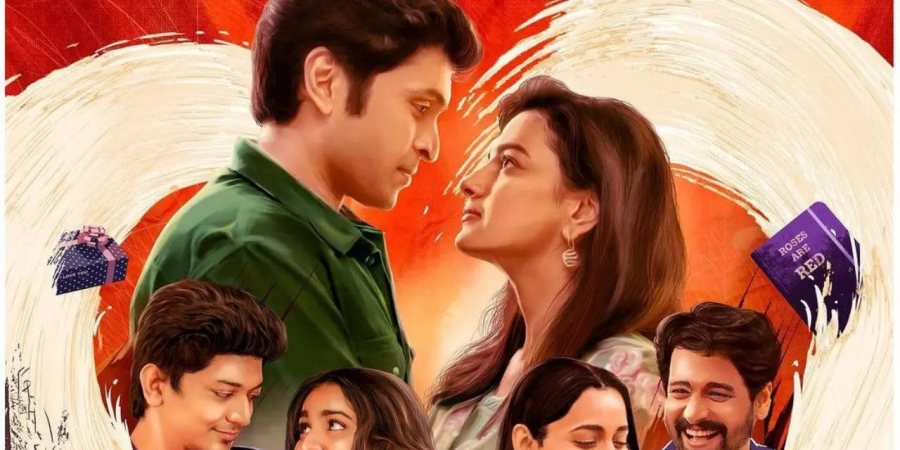

Dramas about relationships have always been popular. There is a huge fan base for relatable urban romances that capture the spirit of the times. And one such movie, "Irugapatru," directed by Yuvaraj Dhayalan, follows the lives of three married couples who are having incompatibilities and are about to end their marriages.The weight gain that his wife Pavithra (Abarnathi) has experienced since giving birth is a major concern for IT professional Rangesh (Vidharth). He detests seeing his wife lie next to him, and since they have a maid or nanny, he needs to "blame" her for being lazy and overindulging in food. Beneath all of that, though, inside their small world, is a painful problem that you may notice in relationships everywhere you look.
A twentysomething couple named Arjun (Sri) and Divya (Saniya Iyappan) struggle with one another's disparate lifestyles, modes of expression, and preferred languages of love. While Divya is terrified to even return home to her husband, the love of her life, Arjun finds it difficult to comprehend that his wife has "fallen out of love" with him. In an instant, he lost his composure.
Arjun and Pavithra, therefore, find their way to the clinic of Mithra Manohar (Shraddha Srinath), a marriage counsellor who calls a spade a spade and instills empathy in everything she says, when everything breaks. She sends Arjun and Pavithra back to their worlds after much thought, but she also asks them to convince their partners to come to a session; although Divya is willing to try, you'll be shocked at how Rangesh is forced to go.
However, because Mithra is a human and we are all fallible, we witness her husband Manohar (Vikram Prabhu) becoming more and more resentful of his wife for constantly "therapizing" him back home. With an iron grip, Mithra attends to even the smallest issues in her relationship and even holds her partner accountable for their weekly "honesty hour." Manohar longs for a more straightforward and easygoing relationship where partners are free to act however they please and argue if necessary. Do men seem to be blaming women for everything these days?
First of all, Yuvaraj's use of humour in the mix is mostly effective (well, except for his mocking remarks about women's bodies). For example, the story of Arjun-Divya is initially presented as having no room for humour, but upon closer inspection of the other two, we discover the late comedian Manobala making a brief appearance as Arjun's boss. This is significant because Yuvaraj's screenplay technique works, each character receives a fair amount of screen time, and the film consistently displays its earnestness.
What disappoints me, though, is how these masterfully written conflicts are resolved. The story doesn't quite support the movie's attempt to convince Pavithra that it's okay for her body to remain unchanged—something that only Mithra believes in. Some superfluous ideas are annoying, such as the psychologist's acceptance of her husband's theory that a certain type of possessiveness is a sign of love despite everything the psychologist does correctly.
Furthermore, in light of all the uniqueness, self-worth, and emotional release that Irugapatru fights for, it appears that the love it gives to each character—by illuminating the reasons behind their differences—puts the movie in a dilemma that it never manages to resolve. In this world, women are ultimately the only ones who take the necessary "actions" to strengthen their relationships—such as avoiding their husbands or following their partners' instructions without question—while men only observe and respond.
Irugapatru is notable for its performances, particularly those of Shraddha, Vidharth, and Sri (watch how, in a montage, Shraddha just smiles to make us feel sorry for Mithra). The wholesome music of Justin Prabhakaran, the sweet frames by Gokul Benoy, and the powerful dialogue all contribute to this.
It is said that even if therapy is successful in helping you resolve 99 percent of your issues, it won't matter if you won't make the extra effort to solve the remaining 1 percent. If you succumb to its demands, Irugapatru is one such informal support circle discussion that might be effective; if the movie forces you to look into the eyes of your loved ones (as Mithra suggests we do on a daily basis) or reflect in order to learn from our mistakes.
